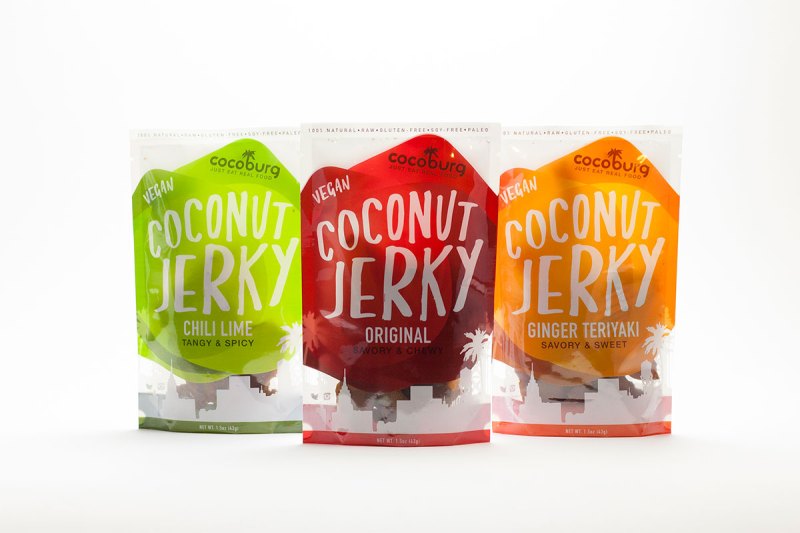The world of snacks can be a dangerous place.
Things can be so delicious (hello Kettle Fully Baked Potato Chips), but so, so bad for you. Sometimes, that’s okay. That’s what cheat days are for. Usually, though, you can’t pound down a tube of Pringles or an entire bag of Cheetos in one sitting, even if it does sound like the best thing to happen to the world in the past eight weeks. The trick is to find a healthy snack that also tastes delicious. Enter coconut jerky.
Made from dehydrated coconut and spices, Brooklyn-based Cocoburg’s coconut jerky is raw, vegan, paleo, soy-free, and dairy-free, so no matter what diet you might be on or trying out, chances are you can fit this in there. To add to that, coconut jerky is rich in fiber (helping you stay fuller longer), and loaded with antioxidants, vitamins, and minerals. Each bag contains around 6g of protein, 30% of the daily value of potassium, and only around 280 calories (140 from fat).
At this point, you may be thinking, “But if the coconut is dehydrated, how is it raw?” Well, according to their website, the coconut jerky is dehydrated at 115 degrees, which the website says is the common and acceptable temperature for raw foods.

Now, onto the jerky itself. Cocoburg produces three flavors: Original (seasoned with salt, pepper, garlic, and onion), Chili Lime, and Ginger Teriyaki. The Chili lime and the Ginger Teriyaki complement the natural flavors of the coconut meat, but the Original holds its own well (and comes closest to the flavors you might expect from a beef or turkey jerky). On the palate, the coconut jerky is not as tough as beef or turkey jerky—think instead of a texture closer to a fruit roll-up.
Each 1.5 oz bag retails for $5.99 on their website, or you can buy a three-bag sampler pack for $17.99. We recommend the latter–it’s easy to binge on an entire bag or three in one sitting.



